Labour Market Information Council
Annual Report
April 2022 to March 2023
Table of contents
Reflections from LMIC’s leadership
EXECUTIVE DIRECTOR

Massimo Bergamini
Executive Director,
Labour Market Information Council
Reading last year’s annual report, I could not help but note the opening line in the executive director’s message: What a year of change. As I prepare to write the executive director’s foreword to this year’s report, I can say that that sentiment still applies.
While change can be a sign of organizational instability, in the case of LMIC, it is a sign of the usual growing pains that every new organization experiences.
It is easy to overlook that LMIC has only existed for six years and that, in two of those years, it had to find its footing during a pandemic that upended its operations and the very labour market it was created to help make sense of. This annual report is a reflection of that.
For LMIC, the 2022-2023 fiscal year was one of taking stock of lessons learned in the first five years. As those lessons are internalized, we can expect more changes to the role and position of LMIC in Canada’s labour market ecosystem, including how the organization engages with its partners and Canadians and how performance and outcomes are measured and communicated.
The last year was also one of leadership transitions.
Tony Bonen, who served as acting executive director from September 2021, departed at the end of 2022. LMIC’s Board Chair, Bindi Sawchuk, completed her term in February following a move to a new role in the B.C. government. I want to thank them both for their service, dedication, and support in my transition to this role.
Massimo Bergamini
CHAIR OF THE BOARD

Suzanne Harbottle
Assistant Deputy Minister, Labour and Workforce Strategies, Jobs, Economy and Northern Development, Government of Alberta
LMIC’s role has never been more critical than it is now.
COVID-19 upended labour markets and challenged long-held assumptions about the nature of work and the workplace. At the same time, the confluence of an aging workforce and record-low unemployment is sending shockwaves across all territories, provinces and multiple sectors of our economy.
From government policy and decision-makers to students, businesses, individuals and families, labour market information (LMI) has become an increasingly important tool. For anyone looking to navigate the world of work, easy access to relevant, quality labour market information has never been more important than it is today.
Not only does LMIC unscramble labour market data to make it intelligible—the organization also provides perspective and context to transform data into information. It identifies problems and connects people and ideas to help solve them, and it facilitates the pan-Canadian exchange of ideas and information.
A talented multi-disciplinary team and robust collaboration with the governments, research organizations, and civil society have positioned LMIC to play a growing and important role in Canada’s dynamic labour markets. Going forward, it will be necessary for LMIC to continue to define itself and maximize its contribution to this vital space.
Suzanne Harbottle
What we accomplished this year
The 2022-2023 fiscal year was one of growth and change at LMIC. We welcomed a new executive director in January 2023, launched a redesign of the Canadian Job Trends Dashboard, hosted a three-part webinar series on LMI for career development practitioners, presented on labour market trends at the Canadian Economics Association annual conference, and collaborated with the Future Skills Centre (FSC) to develop digital LMI tools with two career services organizations. We produced 11 reports and articles, were featured in the media 12 times, and participated in 20 public engagement activities.
Importantly, we also launched critical internal work to strengthen the impact and sustainability of the organization. We established a qualitative research team to complement the quantitative work of our economists, and we worked with KPMG to develop a sustainability plan for the LMIC Data Hub.
In this annual report, we’re pleased to share the results of our year.
Our strategic objectives
In 2021, LMIC launched a Strategic Plan for 2021-2025. Our 2022-2023 Operational Plan, which outlines six key objectives for the year, is aligned with the organization’s goals as defined in the strategic plan.
Guide LMI Systems
2022-2023 Strategic Objective
Enhance LMI practices
2022-2023 Strategic Objective
Champion LMI access
2022-2023 Strategic Objective
These objectives helped shape our projects, research, reports, and initiatives this year.
Here’s how we worked towards achieving them:
Objective
Foster an innovative LMI ecosystem
We co-designed digital tools with career development practitioners.
We collaborated with the Future Skills Centre (FSC) to work with two career services-focused organizations — myBlueprint and the Université Laval’s School of Counseling and Guidance — to create two digital tools that will help career development professionals access and use LMI with their clients.
The tools were developed as a demonstration of how the LMIC Data Hub has the potential to be critical supporting infrastructure that helps all people in Canada access the information they need when making important career choices.
With the co-design stage concluded and the development of the tools by our partners at Code for Canada completed, we look forward to launching these exciting resources with myBlueprint and Université Laval in 2024.
We identified three ways to use online job postings to measure demand for skills.
With accurate and accessible skills information, job seekers can develop the competencies they need to find jobs that are right for them and to succeed in the world of work.
Measures of what skills are in demand, however, are almost non-existent due to limitations in the availability of skills information.
Building on our previous skills research, LMIC outlined the most common sources for obtaining information on the skills requirements of jobs and how this information can be used to measure demand for skills.
Objective
Collaborate with stakeholders to address LMI priorities
We supported the development of Canada’s first framework for mapping skills to occupations.
In December 2022, Employment and Social Development Canada (ESDC) launched the new Occupational and Skills Information System (OaSIS), Canada’s first public framework for mapping skills to occupations.
Developed by ESDC with support from Statistics Canada and LMIC, OaSIS is critical step forward in addressing the gap that exists in occupational and competency-related information in Canada by providing meaningful information on the skills, abilities, personal attributes, knowledge, interests and work contexts for approximately 900 different occupations.
We surveyed LMI stakeholders about their needs.
In partnership with Statistics Canada, we led a feedback-gathering exercise to explore information needs in Canada’s LMI ecosystem.
As a result of the initiative, our report identified a need to increase public awareness of sources of labour market data and information, as well as how to access LMI.
Objective
Encourage the adoption of best practices in the generation, analysis and dissemination of LMI
We identified LMI best practices for under-represented groups.
We developed insights into the state of labour market information for under-represented groups, including for LGBTQ2S+ individuals, persons with disabilities, immigrant youth, and Black Canadians.
We launched a series of six reports and articles based on this initiative:
We measured and tracked shortages.
We participated in technical working groups with our government partners to identify best practices related to methods for tracking labour market tightness and shared our insights.
Objective
Promote labour market consistency and coherency
We grew our library of resources on the future of work.
In partnership with World Education Services, we continued to curate and contribute emerging research on the future of work to our annotated bibliography.
We provided insights into employer-sponsored training.
In partnership with the Future Skills Centre (FSC) and Shift Insights, we investigated how (and if) employers in Canada invest in skills training for their employees, what kind of training they offer, and how Canada’s employer-sponsored skills training practices measure against other OECD countries.
Objective
Enable access to LMI across the pan-Canadian ecosystem
We expanded the LMIC Data Hub.
Building on what we learned from launching a minimum viable product (MVP) version of the Data Hub and testing its use with a selection of key stakeholders, we expanded the data available in the Data Hub to meet needs and demand; we also made operational enhancements based on user feedback.
We integrated Statistics Canada Labour Force Survey data, as well as annual occupation-level forecasts from ESCD’s Canadian Occupational Projection System (COPS).
We set the stage for a sustainable Data Hub.
This year, we also engaged KMPG to develop a business sustainability plan for the Data Hub. The initiative tested sustainability options from three perspectives: strategic viability, marketability and desirability, and financial feasibility.
The objectives of the analysis were to (i) assess the general level of stakeholder support and interest in the Data Hub and its potential future state to identify possible operating models and product offerings;(ii) estimate and compare operating costs across several future scenarios; and, (iii) identify a future path for growth and sustainability of the Data Hub.
Objective
Promote and support the use of LMI
We provided access to online job posting trends.
The Canadian Job Trends Dashboard gives all people in Canada access to the data in online job postings from across the country.
The information found in online job postings can help track trends in occupational demand and work requirements such a skills, knowledge and tools and technology.
In partnership with Vicinity Jobs, this year LMIC launched a new user-friendly design and more timely data.
Built on the LMIC Data Hub, the Canadian Job Trends Dashboard is a proof-of-concept of how the Data Hub can be leveraged to build front-end tools that serve all people in Canada.
We helped career development professionals to access and use LMI.
Career development practitioners are a vital conduit through which people in Canada receive contextualized labour market information and guidance, but many of these services lack high-quality data.
In partnership with CERIC, we hosted a three-part webinar series on new LMI to support career service practitioners with the information they need to help their clients succeed in a changing, dynamic world of work.
Publications
We produced 11 reports and articles between April 2022 and March 2023.
April 2022
Three approaches to developing indicators for skill demand using online job posting data.
July 2022
In March 2022, the number of job vacancies in Canada surpassed 1 million for the first time on record.
August 2022
As a group, gender and sexual minorities in Canada are more likely to live in poverty, face greater barriers to employment, and earn less at work.
November 2022
Labour force growth has been trending downwards for decades. Why, and what are the solutions?
December 2022
This week marks International Day of Persons with Disabilities, but a lack of official data means there’s a lot we don’t know about disability and the labour market in Canada.
February 2023
Black people have been living and working in Canada for centuries.
February 2023
We spoke with Black youth across Canada to understand their perceptions and experiences with the Canadian labour market.
February 2023
Canada’s colour-coded labour market by the data, and in the voices of Black youth.
February 2023
How are young immigrants faring in Canada’s labour market?
March 2023
How much do Canadian employers invest in training, and what training do they offer?
March 2023
In Canada, employer-sponsored training is crucial to ensuring that employees have the necessary skills and knowledge to meet the demands of a constantly evolving job market.
Media coverage
We were featured in the media 12 times between
April 2022 and March 2023.
The Record
April 12, 2022
Toronto Star
June 25, 2022
Globe and Mail
July 1, 2023
Global News Radio
August 30, 2022
What industries are seeing the largest shifts in employment?
Globe and Mail
January 7, 2023
Public engagement
We participated in and led 20 public engagement
activities between April 2022 and March 2023.
Senate Committee on Banking, Trade and Commerce
March 30, 2022
B.C. Ministry of Post-Secondary Education and Future Skills
April 7, 2022
Finding a good job: Labour market information and student job seekers.
Saskatoon Industry Education Council
May 3, 2022
LMI innovations for career development practitioners.
International Labour Organization (ILO)
May 19, 2022
Red River College
May 26, 2022
LMI needs and challenges of students and the future of work.
House of Commons of Canada Standing Senate Committee on Industry and Technology
May 27, 2022
Canadian Economics Association Conference
June 3, 2022
Labour market trends and imbalances.
Minister’s Council on the Canadian Francophonie
June 22, 2023
Besoins non comblés des travailleurs bilingues.
Canadian Association of Administrators of Labour Legislation
June 28, 2022
Labour market tightness and the future of work.
Forum of Labour Market Ministers
August 9, 2022
Labour market tightness and the future of work.
Northwest Territories Deputy Ministers Meeting
August 31, 2022
Labour market tightness in the Northwest Territories.
Metropolis Identities Conference
October 19, 2022
Labour outcomes and the impact of the COVID-19 pandemic on immigrant youth.
University of Guelph
October 19, 2022
Wages, outlooks and skills tools.
Canadian Science Policy Centre
November 17, 2022
Global Labour Organization
December 3, 2022
CERIC Cannexus Conference
January 23-24, 2023
Digital LMI tools for career development practitioners.
CERIC Cannexus Conference
January 25, 2023
Supporting immigrant youth in career lift-off.
Canadian Labour Economics Forum
February 3, 2023
Working towards measuring shortages using online job postings.
Partnerships and collaboration
LMIC’s partnership ecosystem is the foundation of our work and helps us reach all people in Canada. In 2022–2023, we continued collaborating with our partners to harness their expertise, creativity and reach to add value to the Canadian LMI ecosystem.
We work with the Forum of Labour Market Ministers on the Forum’s mandate to address shared labour market issues across Canada. Through our partnerships with the Forum, as well as with Employment and Social Development Canada (ESDC), provincial and territorial governments, the Future Skills Centre (FSC), and other stakeholders, we worked to ensure all people in Canada have access to the labour market information they need to make informed decisions.











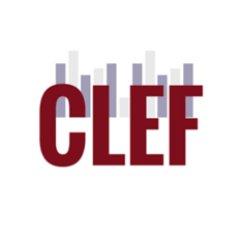
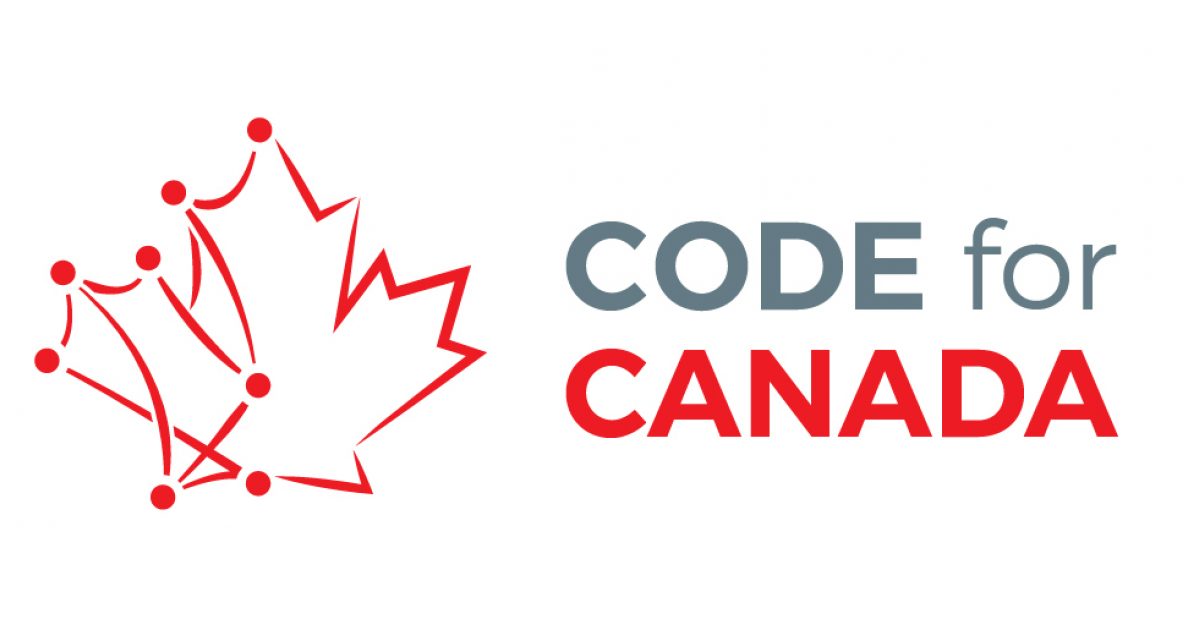



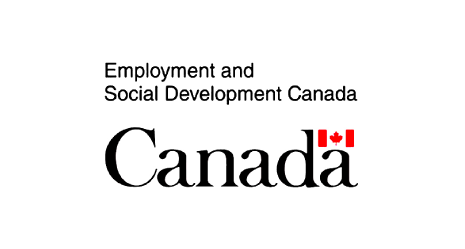




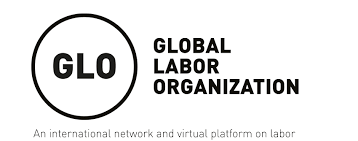


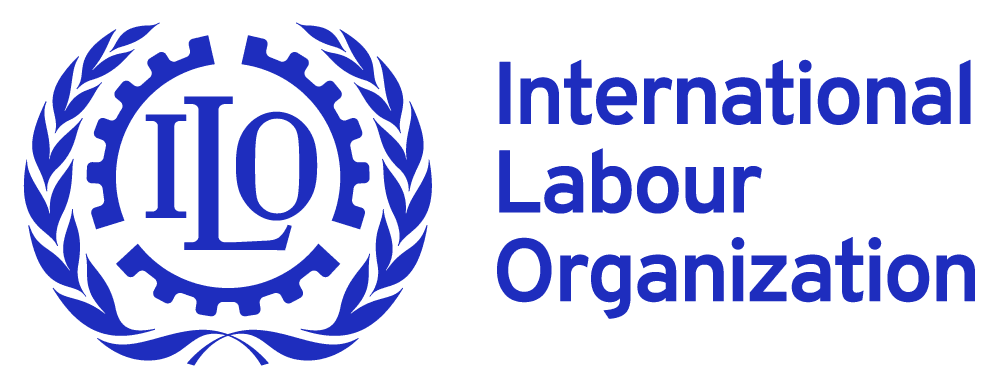





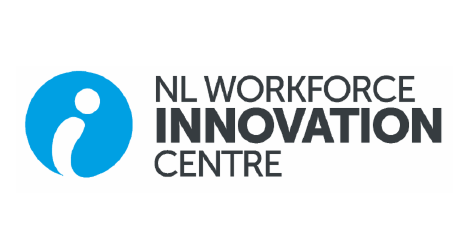

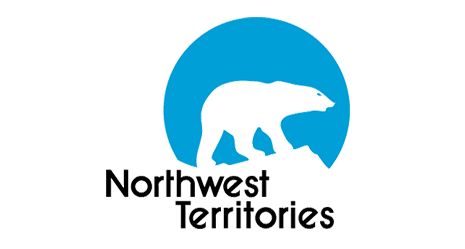







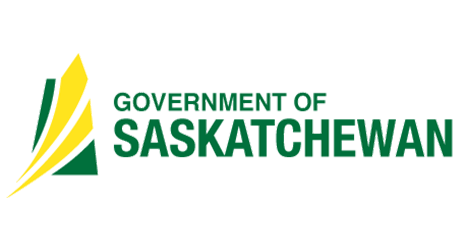













Looking ahead
A strategic refresh
As LMIC enters the third year of its 5-year strategic plan, the rapid change that has characterized the last two years and its implications for Canada's labour market is leading us to rethink our organization’s strategic focus. Working with the Board of Directors, LMIC staff have begun sharpening LMIC’s focus to align its resources to pressing labour market needs and opportunities.
One key change will be a greater strategic and operational emphasis on LMIC’s role as a convenor. LMIC will strive to facilitate greater collaboration and knowledge dissemination across jurisdictions and the LMI ecosystem.
To complement this strategic refresh, in 2023-2024, LMIC will begin to implement a formal and transparent performance measurement system. While implementation of this system will only be completed in the third quarter of 2024, next year’s annual report will reflect a clearer and more compelling assessment of our organization’s labour market impact.
New areas of research
Widespread labour and skills shortages, broadening social awareness of the needs of equity-deserving groups, and the growing use of artificial intelligence (AI) have emerged as important trends shaping Canada’s labour market.
Reports of labour and skills shortages combined with economic inflation have made evident the need for a better understanding of how Canada’s aging workforce, job quality, wages, remote work, and the shift to a green economy will impact the near future of Canada’s labour market.
The previous two years have seen a broad social awakening to the needs, gaps, and barriers affecting equity-deserving groups. LMIC will continue contributing to the evidence base about the labour market outcomes of equity-deserving and under-represented groups, with a 2023-2024 focus on refugees and on neurodiversity. An intersectional lens will be applied to all our investigations to enhance the impact of these new areas of enquiry.
And, finally, AI: job seekers, employers and policymakers are already making life-altering decisions based on information generated with the help of AI. Deployed sensibly, AI could transform LMI in Canada, and LMIC sees the Data Hub as the first step towards this possible future. Positioned as a single source for high-quality, granular, and relevant LMI in Canada, powered by AI and machine learning, we envision the Data Hub providing equitable, low-cost pan-Canadian access to LMI, spurring AI-led innovation in Canada’s LMI ecosystem and ultimately leading to all people in Canada being able to access the information they need to succeed in the labour market. As we look to 2023-2024, we expect to embark on extensive pan-Canadian consultations about the intersection of AI and LMI.
Below is a summary of our research focus areas for the 2023-2024 fiscal year, in which we will tackle under-representation, shortages, skills, and important emerging trends like remote work and the green economy.
2023 - 2024 focus areas
Under-represented groups
Understanding under-representation in Canada’s labour market: An analysis of definitions and approaches
Released in July 2023, this report is a foundational part of LMIC’s work to improve LMI for under-represented groups. The report looks at how economists define who is “under-represented” in the labour market and reviews six approaches.
Filling gaps in labour market information about refugees in Canada
LMIC will provide a detailed analysis of the labour market integration outcomes among refugees, highlighting key factors influencing their success and suggesting strategies for improved outcomes.
Neurodiversity in the workplace
This initiative will examine the impact of neurodiversity on labour market outcomes in Canada.
Career development
Equipping career services with labour market information
LMIC will launch digital LMI tools co-designed with myBlueprint and Université Laval to connect career development practitioners with the LMI they need to serve their clients.
Integrating LMI into career pathway tools
LMIC will also work with the British Columbia Ministry of Advanced Education and Skills Training and the Organisation for Economic Co-operation and Development (OECD) to support integrating LMI data into post-secondary education career pathways tools.
Skills
Connecting the relationships between skills requirements
Online job postings provide a unique data set that can reflect labour demand, providing new avenues to learn about the labour market. This initiative will review what we can learn about skills requirements from online job postings, including how requirements for specific skills shift across markets.
Can online job postings be used to evaluate labour and skill demand?
LMIC will compare approaches and algorithms used to adjust online job posting data for inherent biases, aiming to enhance the measurement of job vacancies and understand the differences between online job postings and official survey data for labour market analysis.
Green economy: What’s a green skill?
This initiative will examine what skills will be required for occupational greening and how Canada might assess skills demand across occupations.
Shortages and trends
How will Canada’s aging workforce impact labour shortages?
LMIC will examine the impact of Canada’s aging workforce and demographic shifts, identifying sectors at risk for labour shortages due to the retirement of mature workers.
Is there a correlation between job quality and labour shortages?
This initiative will look at how various job quality indicators correlate with labour shortages across several industries and occupations.
Wages: Who is most impacted by high inflation?
LMIC will look at the socio-economic characteristics, such as sex, occupation, sector, immigration status, and age, among others, that drive shifts in wage distribution in the face of economic shocks like the COVID-19 pandemic and high inflation.
Green economy: What’s a green job?
LMIC will investigate how critical green economy definitions like sustainable and green jobs can be interpreted and applied to a Canadian context. A second phase of the initiative will examine the impact of a green economy transition on employment and job roles.
How is remote work impacting the labour market?
LMIC will examine the impacts, benefits and challenges of remote work.
Financials
With the Board of Directors’ approval, Baker Tilly audited the financial statements of the Labour Market Information Council as of March 31, 2023. In Baker Tilly's opinion, the financial statements present fairly, in all material respects, the financial position of the Labour Market Information Council as of March 31, 2023, and the results of its operations and its cash flows for the year then ended in accordance with Canadian Accounting Standards for Not-for-profit Organizations. The full Independent Auditor's Report can be read at the link below to promote transparency and accountability.
Cover illustration by Dorothy Leung for LMIC. All rights reserved.










